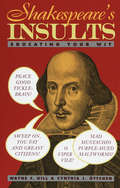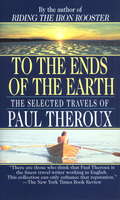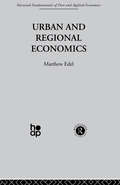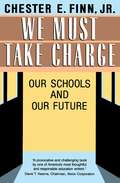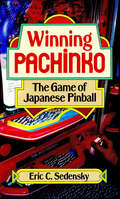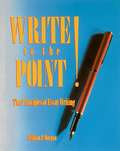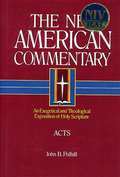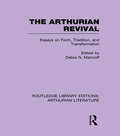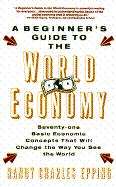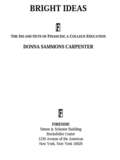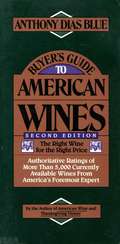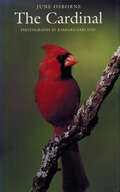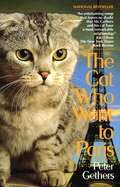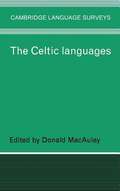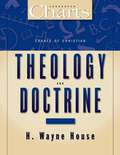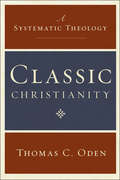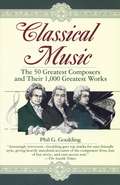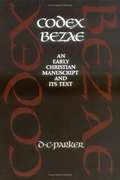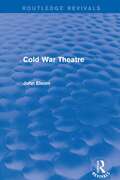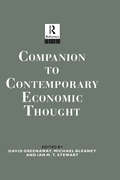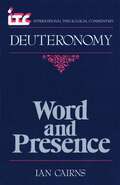- Table View
- List View
Shakespeare's Insults: Educating Your Wit
by Wayne F. Hill Cynthia J. ÖttchenThe sharpest stings ever to snap from the tip of an English-speaking tongue are here at hand, ready to be directed at the knaves, villains, and coxcombs of the reader's choice. Culled from 38 plays, here are the best 5,000 examples of Shakespeare's glorious invective, arranged by play, in order of appearance, with helpful act and line numbers for easy reference, along with an index of topical scorn appropriate to particular characters and occasions.
Speed Cleaning
by Jeff CampbellClean your entire house in 42 minutes with the Clean Team's unbeatable system that makes every move count.NOTE: This edition does not include illustrations.
To the Ends of the Earth
by Paul Theroux"Travel writing at its best."THE HOUSTON POSTAuthor and travel writer Paul Theroux does what no one else can: he travels to the isolated, unusual, and fascinating spots of the world, and creates an elegy to them that makes readers feel they are traveling with him. Evocative, breathtaking, intriguing, here is the armchair traveler's guide to the sites of the world he makes us feel we know.From the Paperback edition.
Urban and Regional Economics: Marxist Perspectives (Fundamentals Of Pure And Applied Economics Ser.)
by M. EdelThis title discusses the treatment of urban and regional issues by Marx, Engels and other early Marxists, and examines recent controversies in these areas.
We Must Take Charge!
by Chester E. Finn Jr.According to leading education analyst Chester Finn, a paradox lies at the heart of our educational trouble. While Americans commonly acknowledge that public schools in general are a disaster, polls consistently show that most parents, teachers, and administrators think their local schools and their own children are doing just fine. The implications of this self-congratulation are profound. For if people believe their own schools and children are succeeding, why should they feel compelled to change things? Yet, if we don't, we will continue to watch the destruction of a system that already lacks accountability and quality control, and is beset by a teaching profession compromised by bad ideas, fads, buck-passing, dubious theories, and stodgy practices. Fin proposes radical changes which he insists must be championed by all Americans if this atrophy is to be reversed. First and most importantly, he calls on us to reorganize education in relation to the results we want from it. This means establishing a clearcut standard of intellectual achievement that we will oblige all of our schools to enforce and our children to meet. To define this standard, we will need to rebuild instruction around, a national curriculum of core subjects - history, science, geography, math, literature and writing. And we must demand a more detailed flow of useful information, including reliable testing, about how our children are performing in relation to this standard. Finn calls on us to give our children as much time, as many options, and as broad an array of resources as possible. As he points out, learning can take place as easily in July as it does in march, as easily in a museum as it does in a classroom. And if parents have choices in deciding which schools and programs best fit the needs of students, they will have an added incentive in helping their children succeed. He urges us to revitalize the means of delivering education from the bottom up, by vesting as much authority as possible with educators in each individual school and holding them accountable for their performance. For Finn, the implementation of these radical measures is essential to produce not only a knowledgeable twenty-first century work force that will keep our nation competitive, but an informed and reasoning citizenry capable of participating fully in a democracy. Challenging and candid, this book will point the way for all those insisting on the best that our schools can offer.
When is a Pig a Hog? A Guide to Confoundingly Related English Words
by Bernice RandallWant to know the difference between a saying, proverb, maxim, saw, adage, aphorism, epigram and motto? This and hundreds of other questions are answered in this informative book.
Winning Pachinko
by Eric C. SedenskyPachinko, a game played by over 30 million Japanese, is synonymous with glaring lights, mind-rattling noise and smoke-choked parlors. To the uninitiated, the game's phenomenal popularity is nothing less than an enigma. The unofficial truth is that pachinko is one of Japan's biggest forms of gambling. For non-Japanese, the hush surrounding this money-making aspect has contributed to misunderstandings about the game. Now, with Winning Pachinko Eric Sedensky opens parlor doors to the English-speaking world and guides readers through the essentials of play - where to buy balls, how to select a machine, and most importantly, how and where to claim one's booty of cool cash. A glossary of pachinko terms, useful diagrams, and photographs accompany the text.
Write to the Point!: Principles of Essay Writing
by William P. MorganThis book is all about writing and contains advice and time-saving strategies for making one's writing clearer, more interesting, and easier to put together.
Acts (The New American Commentary, v. #26)
by John B. PolhillTHE NEW AMERICAN COMMENTARY is for the minister or Bible student who wants to understand and expound the Scriptures. Notable features include: * commentary based on THE NEW INTERNATIONAL VERSION; * the NIV text printed in the body of the commentary; * sound scholarly methodology that reflects capable research in the original languages; * interpretation that emphasizes the theological unity of each book and of Scripture as a whole; * readable and applicable exposition.
The Arthurian Revival: Essays on Form, Tradition, and Transformation (Routledge Library Editions: Arthurian Literature #Vol. 1419)
by Debra N. MancoffDiscrete inquiries into 15 forms of the Arthurian legends produced over the last century explore how they have altered the tradition. They consider works from the US and Europe, and those aimed at popular and elite audiences. The overall conclusion is that the "Arthurian revival" is an ongoing event, and has become multivalent, multinational, and multimedia. Originally published in 1992.
A Beginner's Guide to the World Economy: 71 Basic Economic Concepts that will Change the Way You See the World
by Randy Charles EppingFrom arbitrage to the IMF, from exchange rates to money laundering, a clear exposition of how the global economy works. Includes a glossary of terms.
Bright Ideas: The Ins & Outs of Financing a College Education
by Donna CarpenterWhether your child is 18 months or 18 years of age, the time to start planning for college costs is now! No matter what your financial situation, or the amount of time you have to plan, there is a way to pay for college. With an extensive state-by-state listing of loan sources, as well as a complete breakdown of schools offering prepayment and special tuition-payment plans, co-op education programs, and R.O.T.C., Bright Ideas is required reading for college-bound students and their families.
Buyer's Guide to American Wines
by Anthony Dias BlueIn this completely updated and revised edition, Anthony Dias Blue, the renowned wine expert and author of the definitive wine reference American Wine: A Comprehensive Guide, offers consumers his authoritative ratings of more than 5,000 domestic vintages, listed in an accessible, alphabetical format by wineries and their products.
The Cardinal (Corrie Herring Hooks Series)
by June OsborneIn this inviting guide, June Osborne and Barbara Garland follow a year in the life of the Northern Cardinal with a fact-filled text and glowing color photographs. They describe how cardinals stake out territory and choose mates, find a nesting site and incubate their eggs, feed the young and prepare them for full-fledged independence. The Cardinal also explores the special relationship that humans have with their favorite redbirds. Osborne traces the symbolic use of cardinals as state birds (Illinois, Indiana, Kentucky, North Carolina, Ohio, Virginia, and West Virginia) and athletic mascots and shows how they appear on everything from postage stamps to Christmas cards, as well as in fine art, literature, and Native American folklore.
The Cat Who Went to Paris: The Further Adventures Of Norton, The Cat Who Went To Paris And His Human (Norton the Cat)
by Peter Gethers"Norton is clearly a charmer, and Gethers tells his story with contagious affection....Will warm the heart of any confirmed cat-lover."THE WASHINGTON POST BOOK WORLDBefore Peter Gethers met Norton, the publisher, screenwriter, and author was a confirmed cat-hater. Then everything changed. Peter opened his heart to the Scottish Fold kitten and their adventures to Paris, Fire Island, and in the subways of Manhattan took on the color of legend and mutual love. THE CAT WHO WENT TO PARIS proves that sometimes all it takes is paws and personality to change a life.From the Trade Paperback edition.
The Celtic Languages
by Donald MacaulayThis volume describes the six modern Celtic languages. Four of these, Modern Irish, Scottish Gaelic, Welsh and Breton, are living community languages; the other two, Manx and Cornish, survived into the modern period, but are no longer extant as community languages, though they are the subject of enthusiastic revivals. The Celtic languages sets them briefly in their Indo-European context, and states their general relationships within the broader Celtic language family. Individual linguistic studies are first placed briefly in their sociolinguistic and sociohistorical context. A detailed synchronic account of each language then follows, including syntax, morphology, phonology, morphophonology, dialect variation and distribution. Each description is based on a common plan, thus facilitating comparison amongst the different languages. This latest volume in the Cambridge Language Surveys will be welcomed by all scholars of the Celtic languages, but has also been designed to be accessible to any reader with only a basic knowledge of linguistics. It is the only modern account to deal with all surviving Celtic languages in this detail.
Charts of Christian Theology and Doctrine (ZondervanCharts)
by H. Wayne HouseZondervanCharts are ready references for those who need essential information in a hurry. Accessible and highly useful, the books in this library offer clear organization and thorough summaries of issues, subjects, and topics that are key to Christian students. Titles in this growing series include Charts of Ancient and Medieval Church History; Charts of Reformation and Enlightenment Church History; Charts of Modern and Postmodern Church History; Charts of Bible Prophecy; Charts of Cults, Sects, and Religious Movements; Charts of World Religions; Charts of Christian Ethics; Charts of Christian Theology and Doctrine; Charts of the Gospels and the Life of Christ; Taxonomic Charts of Theology and Biblical Studies; Chronological and Background Charts of the Old Testament; Chronological and Background Charts of the New Testament; Chronological and Background Charts of Church History; and Timeline Charts of the Western Church.
Classic Christianity
by Thomas C. OdenFor the first time, Thomas Oden's Systematic Theology classic series (individually titled The Living God, The Word of Life, and Life in the Spirit) is available in one complete volume. A renowned theologian, Oden provides a consensus view of the Christian faith, delving deeply into ancient Christian tradition and bringing to the contemporary church the best wisdom from its past. In this magisterial work, Oden tackles the central questions of Christian belief and the nature of the trinity. Written for clergy, Christian educators, religious scholars, and lay readers alike, Classic Christianity provides the best synthesis of the whole history of Christian thought. Part one explores the most intriguing questions of the study of God--Does God exist? Does Jesus reveal God? Is God personal, compassionate, free?--and presents answers that reflect the broad consensus culled from the breadth of the church's teachers. It is rooted deeply and deliberately in scripture but confronts the contemporary mind with the vitality of the Christian tradition. Part two addresses the perplexing Christological issues of whether God became flesh, whether God became Christ, and whether Christ is the source of salvation. Oden details the core beliefs concerning Jesus Christ that have been handed down for the last two hundred decades, namely, who he was, what he did, and what that means for us today. Part three examines how the work of God in creation and redemption is being brought to consummation by the Holy Spirit in persons, through communities, and in the fullness of human destiny. Oden's magisterial study not only treats the traditional elements of systematical theology but also highlights the foundational exegetes throughout history. Covering the ecumenical councils and early synods; the great teachers of the Eastern church tradition, including Athanasius and John Chrysostom; and the prominent Western figures such as Augustine, Ambrose, Thomas Aquinas, Martin Luther, and John Calvin, this book offers the reader the fullest understanding of the Christian faith available.
Classic Christianity
by Thomas C. OdenFor the first time, Thomas Oden's Systematic Theology classic series (individually titled The Living God, The Word of Life, and Life in the Spirit) is available in one complete volume. A renowned theologian, Oden provides a consensus view of the Christian faith, delving deeply into ancient Christian tradition and bringing to the contemporary church the best wisdom from its past. In this magisterial work, Oden tackles the central questions of Christian belief and the nature of the trinity. Written for clergy, Christian educators, religious scholars, and lay readers alike, Classic Christianity provides the best synthesis of the whole history of Christian thought. Part one explores the most intriguing questions of the study of God--Does God exist? Does Jesus reveal God? Is God personal, compassionate, free?--and presents answers that reflect the broad consensus culled from the breadth of the church's teachers. It is rooted deeply and deliberately in scripture but confronts the contemporary mind with the vitality of the Christian tradition. Part two addresses the perplexing Christological issues of whether God became flesh, whether God became Christ, and whether Christ is the source of salvation. Oden details the core beliefs concerning Jesus Christ that have been handed down for the last two hundred decades, namely, who he was, what he did, and what that means for us today. Part three examines how the work of God in creation and redemption is being brought to consummation by the Holy Spirit in persons, through communities, and in the fullness of human destiny. Oden's magisterial study not only treats the traditional elements of systematical theology but also highlights the foundational exegetes throughout history. Covering the ecumenical councils and early synods; the great teachers of the Eastern church tradition, including Athanasius and John Chrysostom; and the prominent Western figures such as Augustine, Ambrose, Thomas Aquinas, Martin Luther, and John Calvin, this book offers the reader the fullest understanding of the Christian faith available.
Classical Music: The 50 Greatest Composers and Their 1,000 Greatest Works
by Phil G. GouldingMAKE A SOUND INVESTMENT IN CLASSICAL MUSICWho are the ten most important classical composers? Who in the world was Palestrina? Why did Stravinsky's "Rite of Spring" cause a riot? Which five of each important composer's works should you buy? What is a concerto and how does it differ from a sonata?Maybe you don't know the answers to these questions; author Phil Goulding certainly didn't. When Goulding first tried to learn about classical music, he found himself buried in an avalanche of technical terms and complicated jargon--so he decided to write the book he couldn't find.The result is a complete classical music education in one volume. Comprehensive, discriminating, and delightfully irreverent, Classical Music provides such essential information as:* Rankings of the top 50 composers (Bach is #1. Borodin is #50) * A detailed and anecdotal look at each composer's life and work * The five primary works of each composer and specific recommended CDs for each. * Further great works of each composer--if you really like him * Concise explanations of musical terminology, forms, and periods * A guide to the parts and history of the symphony orchestra "This book uses every conceivable gimmick to immerse readers in the richness of classical music: lists, rankings, sidebars devoted to lively anecdotes, and catchy leads."--The Washington Post"One terrific music appreciation book...The information is surprisingly detailed but concisely presented. Goulding's writing style is breezy yet mature....[He] has raised music appreciation from a racket to a service."--The Arizona Daily StarFrom the Trade Paperback edition.
Codex Bezae: An Early Christian Manuscript And Its Text
by D. C. ParkerCodex Bezae is one of the most important primary sources in New Testament scholarship. Since its rediscovery in the sixteenth century it has continued to fascinate scholars, who have remained intrigued by the riddles of its general appearance and textual characteristics. David Parker makes the first comprehensive investigation of the manuscript for over a century, and sets out to uncover the story behind this most enigmatic of manuscripts. By studying the characteristics of Codex Bezae, both physical and textual, and by comparing its Greek and Latin texts, the author aims to show how a bilingual tradition developed, and thus to discover as much as possible about its earliest stages, which leads to an important new theory about its origins. In a final section, the general character of the text is assessed with a view to what this can tell us of the earliest traditions about Jesus.
Cold War Theatre (Routledge Revivals)
by John ElsomCold War Theatre, first published in 1992, provides an account of the theatrical history within the context of East/West politics. Its geographical span ranges from beyond the Urals to the Pacific Coast of the US, and asks whether the Cold War confrontation was not in part due to the cultural climate of Europe. Taking the McCarthy era as its starting point, this readable history considers the impact of the Cold War upon the major dramatic movements of our time, East and West. The author poses the question as to whether European habits of mind, fostered by their cultures, may not have contributed to the political stalemates of the Cold War. A wide range of actors from both the theatrical and political stages are discussed, and their contributions to the theatre of the Cold War examined in a hugely enjoyable and enlightening narrative. This book is ideal for theatre studies students.
Companion to Contemporary Economic Thought (Routledge Companion Encyclopedias)
by Michael Bleaney David Greenaway Dr Ian Stewart Ian Stewart* 41 in-depth essays cover current economic theory and applied economics in a single, comprehensive volume* Interfaces section considers economics as it relates to other disciplines* Extensive notes, bibliographies and suggestions for further reading; detailed index of Topics and People`A treasure-house of stimulating argument and vast amounts of, mostly, well marshalled information. The market for general survey volumes, while already crowded, should surely find room for this offering.' - The World Economy`The work under review scores very high marks.' - The Economic Journal`The chapters are written by people who are excellently qualified and frequently well-known in their field ... The book's strengths lie in the range of contributors, the very high quality of most of the contributors and its emphasis on applied economics. For these reasons alone it is an important book, which will be invaluable both to students and to economists wishing to learn about developments in other branches of their discipline.' - Economica
A Concise Dictionary of First Names
by Patricia Hanks Flavia HodgesHere is the ultimate first name handbook, a delightfully informative, comprehensive survey of over 4,500 European and American names (with two appendices covering the most common Arabic and Indian names). The real charm and value of this reference lies in the wealth of fascinating additional information the authors provide. Under the entry for "Audrey," for example, we learn of the sixth century saint of that name--who died from a neck tumor, divine punishment for her youthful delight in fine necklaces--from whom the word "tawdry" derives: it referred originally to the cheap jewelry sold at fairs in her honor (St. Audrey eventually being compressed into "tawdry"). The authors reveal that the name "Colleen," a very popular name among Irish Americans, is in fact never given as a first name in Ireland; that the name "Wendy" didn't exist until J.M. Barrie invented it for Peter Pan; that "Algernon" originally meant "moustached" and was a nickname among the predominantly clean-shaven Norman French; and that the "th" in our spelling of "Anthony" comes from an erroneous confusion with the Greek word for flower, anthos. Perhaps more important, this dictionary is an authoritative reference. Indeed, no other handbook provides a fraction of the information found here. Typical entries provide the linguistic and ethnic root of a name. "Jennifer," for instance, is a Cornish form of "Guinevere," which in turn is the French version of a Welsh name combining gwen, white, fair, smooth, and hwyfar, smooth, soft. Most entries also include the non-English form or cognate of a name. The name "Geronimo" is an Italian cognate of Jerome, whose Dutch cognate, "Jeroen," the authors point out, was the most popular male name in Holland in 1981. In addition, entries include diminutives and pet forms. A companion to the authors' A Dictionary of Surnames, this informative reference offers a goldmine of curious facts to delight browsers of every age as well as a wealth of inspiration for prospective parents. It is an ideal baby shower gift.
Deuteronomy: Word and Presence
by Ian CairnsIn this commentary Ian Cairns presents Deuteronomy as a slowly evolving, complex composite — as legal code, as treaty text or covenant, as Moses' farewell speech, and as the final volume of the Pentateuch. Despite Deuteronomy's structural complexity, however, Cairns shows how the theme "Word and Presence" permeates the entire book: God is the living Presence who can be encountered and known through his word addressed to each generation in turn. This commentary is unique in its emphasis on the theology of Deuteronomy (e.g., law as "humane instruction") as well as in its modern applications and illustrations from non-Western cultures.
